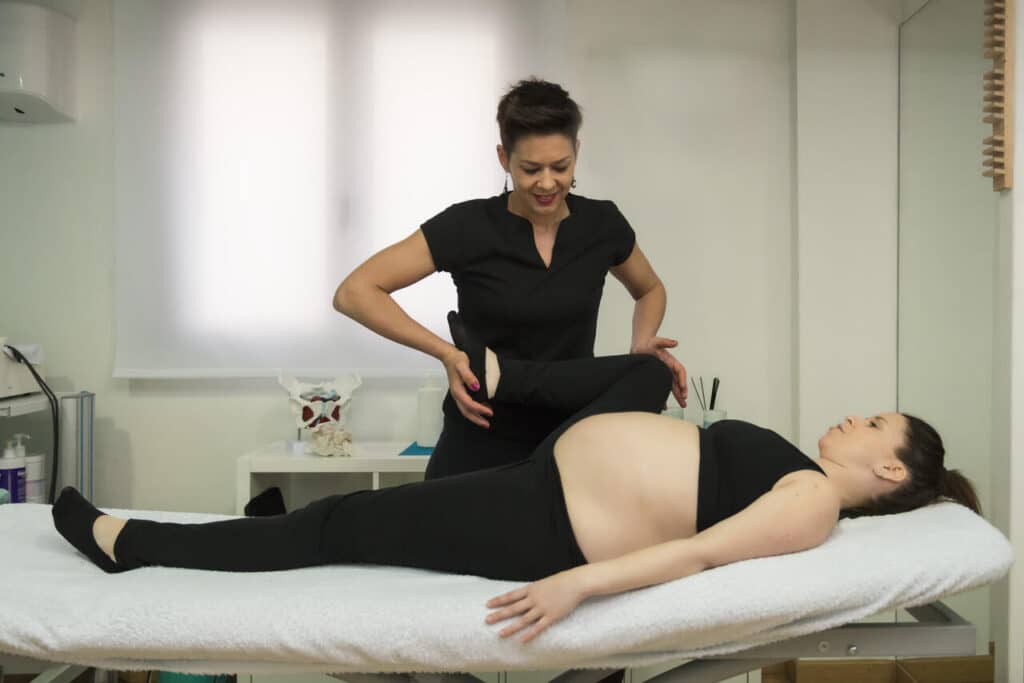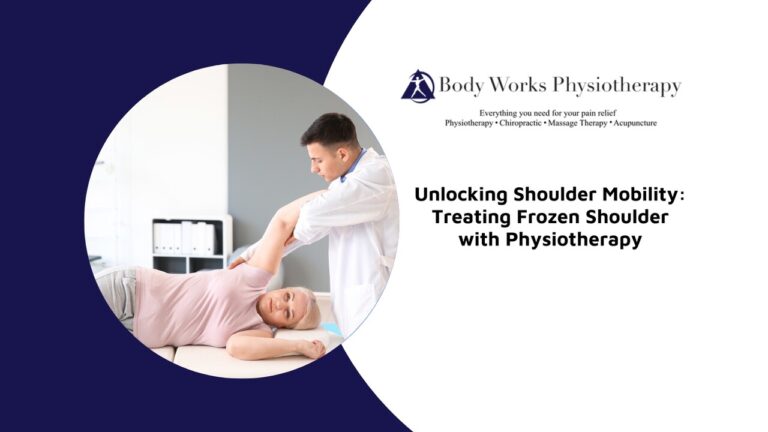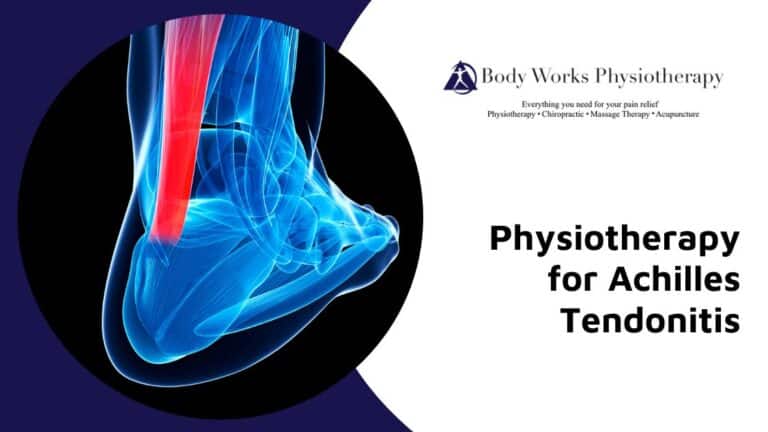
Have you ever wondered why joint and muscle pain continue to be such persistent problems during pregnancy? From hormones to body change, the answer is far from simple. In this post, we explore how physiotherapy can help alleviate common pregnancy-related pains, the types of treatments available, and the right time to start physiotherapy in your pregnancy journey.
Addressing Pregnancy-Related Discomfort With Physiotherapy
Physiotherapy can be highly effective in alleviating common pregnancy-related discomforts. During pregnancy, many women experience pelvic pain, back pain, and other musculoskeletal issues. A skilled physiotherapist can provide targeted physiotherapy treatments to address these discomforts, focusing on improving posture, reducing pain, and enhancing overall pelvic health.
Pelvic floor physiotherapy, in particular, can strengthen pelvic floor muscles, helping to alleviate issues such as urinary incontinence and pelvic pain. Pregnancy and childbirth can weaken pelvic floor muscles, leading to conditions such as pelvic organ prolapse, urinary incontinence, and pelvic pain.
A physiotherapist can develop a personalized treatment plan that includes specific exercises to strengthen the pelvic floor muscles, improve pelvic health, and alleviate symptoms of prolapse and incontinence.
Physiotherapy for Pregnancy: Specific Techniques Explained
Physiotherapy for pregnancy may incorporate several safe and beneficial treatments, including:
- Gentle Pelvic Floor Exercises: These exercises, like Kegels, focus on strengthening the pelvic floor muscles to support the bladder, bowel, and uterus. By contracting and relaxing these muscles regularly, pregnant women can reduce the risk of incontinence and prepare the pelvic floor for childbirth.
- Prenatal Massage: This therapy helps alleviate pregnancy-related discomforts such as lower back pain, swelling, and muscle tension. Prenatal massage involves gentle, soothing techniques to improve circulation, reduce stress, and promote overall relaxation. It is tailored to the needs of pregnant women, ensuring comfort and safety.
- Posture Correction: Proper posture during pregnancy can prevent and alleviate back and neck pain. Physiotherapists teach posture correction techniques to help maintain alignment and reduce strain on the spine. Simple adjustments like standing with shoulders back and aligning the pelvis can make a significant difference in comfort.
- Specific Exercises for Abdominal and Back Muscles: Strengthening the core and back muscles helps support the extra weight of pregnancy and reduces the risk of back pain. Exercises such as modified planks and pelvic tilts are designed to strengthen these areas without putting undue stress on the body.
- Low-Impact Aerobic Exercises: Physiotherapists may also recommend low-impact aerobic exercises and stretching routines to maintain flexibility and reduce muscle tension. Activities like walking, swimming, and stationary cycling are recommended to maintain cardiovascular fitness during pregnancy. These low-impact exercises help improve circulation, boost energy levels, and promote overall well-being without excessive strain on the joints.
- Stretching Routines: Regular stretching helps maintain flexibility and reduce muscle tension. Gentle stretches for the back, hips, and legs can alleviate discomfort and improve mobility. For example, the seated forward bend stretches the hamstrings and lower back, providing relief from tightness.
It’s essential to work with a physiotherapist experienced in prenatal care to ensure all treatments are safe and effective for both the mother and the baby.
When Should I Start Seeing a Physiotherapist?
Generally, it’s beneficial to start seeing a physiotherapist as early as possible during pregnancy. Early intervention can help manage and prevent common pregnancy-related discomforts. However, it’s never too late to seek physiotherapy care. Even in the later stages of pregnancy, physiotherapy can provide significant relief from pelvic pain, back pain, and other discomforts, while also preparing the body for labour and childbirth.
Recommended Physiotherapy Exercises for Pregnant Women
Physiotherapists recommend several specific exercises for pregnant women to support their overall health and manage pregnancy-related discomforts. These exercises often include
- Pelvic Floor Exercises: Also known as Kegel exercises, these involve tightening and relaxing the pelvic floor muscles to strengthen them. They are performed by squeezing the muscles you would use to stop the flow of urine, holding for a few seconds, and then releasing. Regular practice can help prevent urinary incontinence and support the pelvic organs.
- Gentle Abdominal Strengthening: Exercises like the pelvic tilt can help strengthen the abdominal muscles without putting strain on the back. To perform a pelvic tilt, lie on your back with your knees bent and feet flat on the floor. Tighten your abdominal muscles and gently tilt your pelvis upward, flattening your back against the floor, then relax.
- Back Stretches: Cat-Cow stretch is a simple exercise that can relieve back pain and improve flexibility. Start on your hands and knees, then arch your back upwards like a cat (Cat pose) and then lower your back and lift your head (Cow pose). Repeat several times to stretch and relieve tension in the back muscles.
- Posture Correction Routines: These exercises focus on maintaining proper alignment and reducing strain on the spine. An example is the wall slide: stand with your back against a wall, feet shoulder-width apart, and slowly slide down into a squat position, keeping your back flat against the wall.
- Prenatal Yoga and Pilates: These low-impact exercise routines are excellent for improving flexibility, strength, and relaxation. Prenatal yoga includes poses like the modified pigeon pose, which stretches the hips and lower back. Pilates focuses on core stability with exercises like the modified plank, which strengthens the abdominal and back muscles.
It’s crucial to perform these exercises under the guidance of a qualified physiotherapist to ensure they are done correctly and safely.
How Often Should You Attend Physiotherapy Sessions?
The frequency of physiotherapy sessions for pregnant women can vary based on individual needs and the specific issues being addressed. Generally, attending physiotherapy sessions once a week or every two weeks can provide significant benefits. Your physiotherapist will assess your condition and develop a treatment plan tailored to your needs, adjusting the frequency of sessions as necessary to ensure optimal outcomes.
Post-Partum Recovery: The Role of Physiotherapy
Physiotherapy plays a crucial role in postpartum recovery. After childbirth, many women experience weakened pelvic floor muscles, abdominal separation (diastasis recti), and other musculoskeletal issues. A physiotherapist can design a rehabilitation program to address these concerns, focusing on strengthening the pelvic floor and abdominal muscles, improving posture, and reducing back pain. Postpartum physiotherapy can also help manage urinary incontinence, prolapse, and other postpartum conditions, promoting overall pelvic health and aiding in a faster, more effective recovery.
- Strengthening Pelvic Floor Muscles: After childbirth, many women experience weakened pelvic floor muscles. Physiotherapy focuses on exercises that strengthen these muscles, which support the bladder, bowel, and uterus, helping to reduce the risk of incontinence and pelvic organ prolapse.
- Addressing Abdominal Separation (Diastasis Recti): Abdominal separation is a common postnatal issue where the abdominal muscles separate due to the strain of pregnancy. A physiotherapist can design specific exercises to close this gap, improve core strength, and restore abdominal function.
- Improving Posture: Postnatal physiotherapy includes techniques to correct posture, which can be negatively affected by the physical demands of pregnancy and caring for a newborn. Improved posture helps alleviate neck and back pain and enhances overall alignment and comfort.
- Reducing Back Pain: Pregnancy and childbirth can strain the back muscles, leading to persistent pain. Physiotherapy involves targeted exercises and stretches to relieve this pain, strengthen the back muscles, and prevent future discomfort.
- Managing Urinary Incontinence and Prolapse: Postnatal physiotherapy can effectively manage urinary incontinence and pelvic organ prolapse by strengthening the pelvic floor muscles and providing strategies to manage symptoms, promoting long-term pelvic health.
- Promoting Overall Pelvic Health: Physiotherapy helps address various postpartum conditions, including pain and discomfort in the pelvic region. By focusing on muscle strength, flexibility, and proper alignment, physiotherapy supports overall pelvic health and aids in a faster, more effective recovery.
Embrace a Pain-Free Pregnancy Journey
Opting for physiotherapy during pregnancy can make a significant difference in your comfort and overall well-being. At Body Works Physiotherapy in Scarborough, our experienced physiotherapists provide support both before and after delivery, offering personalized treatment plans to address your unique needs. Don’t let pregnancy-related discomforts hinder your joy. Book an appointment with us today and take the first step towards a healthier, more comfortable pregnancy. Let us help you prepare your body for the beautiful journey of motherhood with compassionate care and support.





